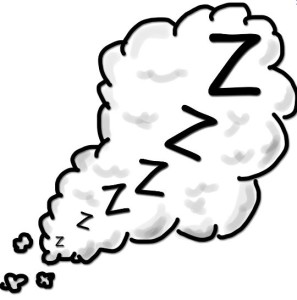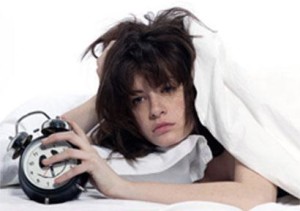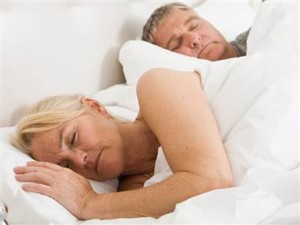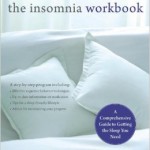Sleep & Insomnia
EVERYONE has trouble sleeping at some time or another, even for weeks or months at a time.
 The best treatment for poor sleep is NOT medications. Medications can cause more harm than good. They are addictive and habit-forming. They cause people to “forget” how to sleep normally. Sleep medications should NEVER be taken on a routine basis, every night. Click here for more information about the dangers of sleeping pills.
The best treatment for poor sleep is NOT medications. Medications can cause more harm than good. They are addictive and habit-forming. They cause people to “forget” how to sleep normally. Sleep medications should NEVER be taken on a routine basis, every night. Click here for more information about the dangers of sleeping pills.
YES, you may be tired the next day after a poor night’s sleep, but it’s not the end of the world. People make a “catastrophe” out of getting a poor night’s sleep, but it’s really not.
Sleep medications should only be used as sparingly as possible, maybe two times per week at most. They should NOT be taken every night.
Too often, people start taking sleeping pills when they are younger. They get in the habit of taking them, and then and 10 or 20 years go by and they are still taking them! Sleeping pills become especially dangerous as a person gets older. Here is a handout for more information on this.
DR. STEWART’S SLEEP MEDICINE PRESCRIPTIONS:
- Dr. Stewart will not prescribe more than 5 doses per week.
- This ensures patients do not to rely on pills every single night to sleep. It allows their bodies to remember how to fall asleep naturally.
- Even someone who works 5 days per week should not require sleeping medications during weekends.
- If you are retired or not employed, there should be even less need for sleep medications because you do not have to worry about being tired for work the next day!
- Research shows that sleeping pills might only add 25 minutes to your sleep on average. The risks and side effects of of sleeping bills outweigh he benefits!
INSTEAD OF MEDICATIONS, TRY THE FOLLOWING …
Sleep Hygiene:
- Avoid Caffeine. For some people, caffeine stays in their bodies for up to 24 hours.
- Avoid alcohol. Alcohol causes drowsiness, but it actually keeps you from being able to sleep properly through the night.
- Quit smoking. Cigarettes and nicotine are stimulants. They significantly interfere with sleep.
- Avoid heavy meals or too much liquid before bedtime.
- Get regular exercise during the day, but avoid heavy exercise within 3 hours of bedtime.
- Keep your bedroom quiet, dark, and comfortable temperature. Minimize noise and light. Some people need total darkness to sleep. However, a quiet background fan or “white noise” may be helpful.
- Avoid watching or checking the clock. Stop obsessing about your sleep.
- Avoid napping during the day.
- Keep a routine. Try to go to bed and wake up ever day around the same time, even on weekends.

Stimulus Control:
- Remove the TV and computer from the bedroom.
- Avoid watching TV or using a computer or tablet before bed. They use bright, stimulating lights that make it difficult to fall asleep after.
- Go to bed only when you feel tired, even if later than you planned.
- Get out of bed if not able to sleep within 20 minutes. Go to another room and relax. Try a relaxing activity, such as reading. Avoid watching TV or the computer. Return to bed only when sleepy.
Relations Strategies:
- Avoid arousing activities before bed (i.e. late night phone calls, doing work, watching TV).
- Designate at least 1 hour before bedtime to help unwind from the day’s stresses. You can even trying dimming the lights.
- Do something relaxing before bed such as reading, deep breathing, stretching, yoga, or relaxation CDs.
Books & Self-help:
- Go to your local bookstore or online and check out the many options to learn more about insomnia and self-manage your sleep.
- For example, “The Insomnia Workbook” by Stephanie Silberman and Charles Morin
 is an excellent book. It costs as low as $16.00 online.
is an excellent book. It costs as low as $16.00 online. - If you have a smartphone, there are many apps available for insomnia and relaxation.
- Consider trying this FREE WEBSITE/PODCAST called “SleepWithMePodcast.com“. Listen to the stories as your mind wanders off and you fall asleep naturally.
5 KEY QUESTIONS on Insomnia:
OTHER FACTORS THAT CAN CAUSE TROUBLE SLEEPING:
Some people may have medical conditions that cause poor sleep, such as:
- Obstructive Sleep Apnea (associated with loud snoring).
- Urinary or Prostate Problems (causing frequent urination during the night).
- Mood Disorders (such as anxiety or depression).
- Asthma or COPD (chronic bronchitis or emphysema).
- Chronic Pain.
- Heartburn or Gastric Reflux (“GERD”).
- Restless Leg Syndrome.
- Side effects of other medications.
Speak to your doctor if you think any of these other conditions are affecting your sleep.


